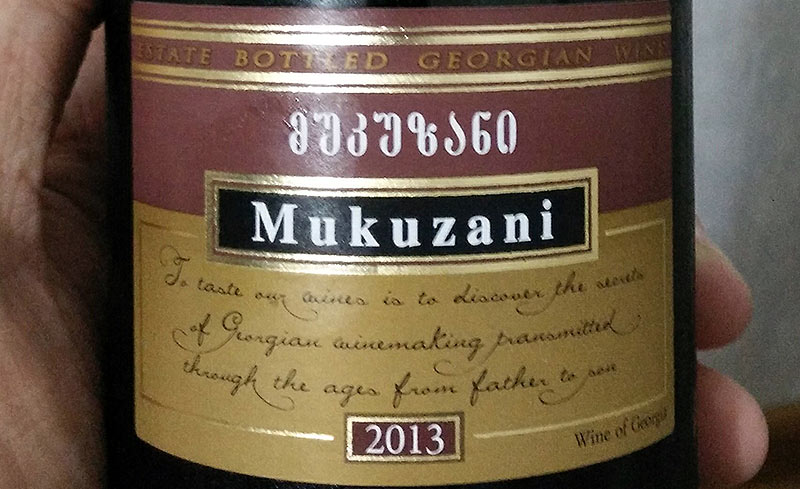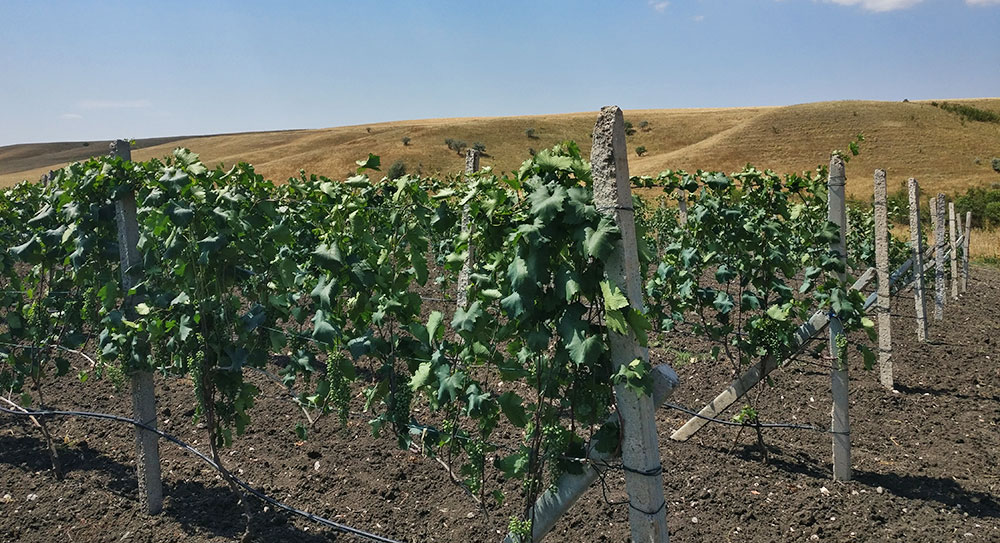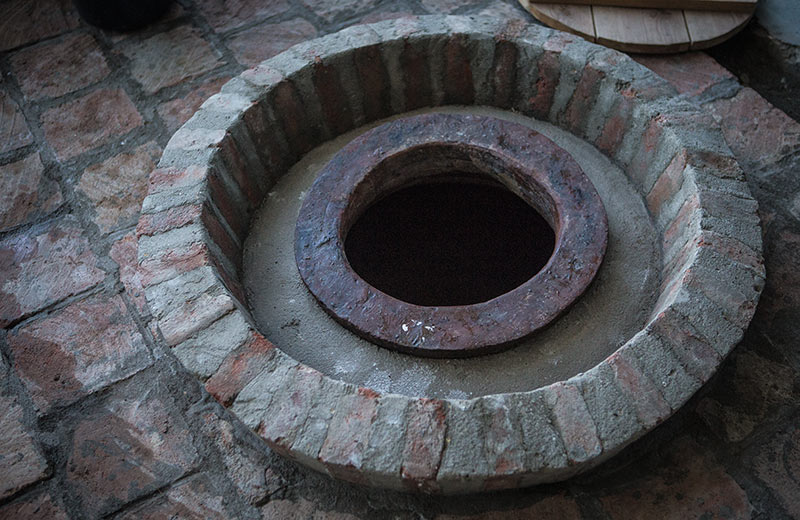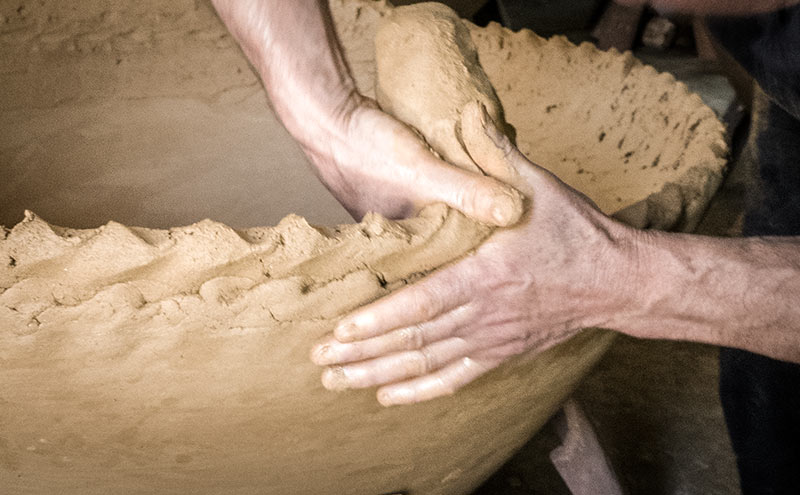Before heading on trip to Georgia (country, not US state…) I started to read up more on the various regions and wines to have a better idea of what I was heading in to. Of course that left me finding not enough information and so I ended up writing a new book on Georgian wines.
As often stated, the country has been producing wine for 8,000 years and has over 500 native grape varieties. For anyone trying to wrap their head around all the more popular European grape and region names, this is not welcome news…
I soon gave up as I realized that somewhere along the line, someone acted out a linguistic vendetta towards the Georgians and transliterated the Georgian names into the weirdest concoctions you’ve ever seen, specifically with the over-abundance of the letter ‘v’ which is sometimes actually a ‘v’ and other times a ‘u’. This can be no easier seen in the fact that we have the name of Georgia completely an utterly wrong in English as it’s actually Sakartvelo. That’s not as hard as it sounds as it’s actually pronounced ‘sakartuelo’ which goes to show how ridiculous this whole ‘v’ thing is.
Added in to this fun is that the US state of Georgia produces wine as well and at some point, even if it’s never recognized at a UN level, in the wine trade we should really refer to Georgian wines as Sakartvelo wines as they as certainly worthy of being un-confused with those wines from the humid South of the United States. In fact, let’s start doing that right here and now.
I’ll be writing more about other aspects to Sakartvelo wines so I’ll take a moment to clarify a few things for whomever might be reading this and doesn’t want to tie their brain in a knot like I did when trying to figure out how the hell these names. Well, beyond the easy ones like the red Saperavi and Aladasturi grapes or the white, Kisi and Chinuri grapes.
Gvino (Ghvino/Hvino)
This is the most important word of all as it’s the Kartuli ena (Georgian) word for wine! But it immediately shows how silly this ‘v’ is as the word actually sounds like, ‘guino’. You might think, “Gee, that seems a lot like ‘vino’ in Spanish, Italian, Croatian, etc.” when it’s actually the other way around and the consensus today is that ‘wine’, ‘vino’, and all other derivations of the word originally came from Sakartvelo which is pretty damned cool.
Kvevri (Qvevri)
This is the name of the now rather famous amphorae in Sakartvelo although the exact same clay containers exist in Armenia where they’re called ‘Karasi’. This name looks impossible to say but it’s really not that bad: “kuev-ri”. The question as to why two v’s were used is bizarre but not as bizarre as the hopefully soon-to-be lost spelling with a ‘q’. That apparently came about due to the ‘q’ on the English keyboard being the same letter as the ‘ქ’ on the Sakartvelo keyboard. I actually had someone show me this, so I can verify that it’s true. Supposedly, John Wurdeman of Pheasant’s Tears was also pushing for it as he liked the shape of the ‘q’ more than the ‘k’. I’ve only heard their secondhand so I don’t know if it’s true or not and I’d put more faith in the first explanation.
Kakheti
The far eastern region of Georgia with 70% of the wine production, thus an important place to know. In this case, it’s the ‘h’ that’s confusing as the ‘kh’ is mean to signify a hard ‘h’ like the ‘jota’ in Spanish, thus this is really just, ‘kaheti’. For some reason in Russian it’s ‘kahetia’, but in Kartuli ena that trailing ‘a’ isn’t there.
Rkatsiteli
A white grape that’s been a workhorse of the region for some time. That’s an onerous name, but there’s no reason it should be that difficult to say as from all I can tell, the ‘r’ is essentially unvoiced. It’s like someone saw it there in Kartuli ena and decided to drag it along for the ride like your mom making you take your little brother out with your friends to party. The ‘ts’ is like the end of ‘cats’ so in the end it sounds like ‘kats-i-te-li’ which to me sounds nearly Italian although an Italian told me it sounds like something rather rude in Italian.
Mtsvane
A relatively common white grape, it’s sometimes it’s written ‘mtsvani’ but that’s incorrect. This is a bit more of a tongue twister as that ‘ts’ sound comes in to play again and yes, the ‘m’ is indeed said. To make it a bit easier, try to say, ‘mitts-va-ne’ as it’s very, very close to the actual pronunciation.
Khikhvi
I kinda threw this in here for shits and giggles because it’s not commonly found but it pulls in all these hard to pronounce and badly-spelled items. In short, this has the hard ‘h’ at the beginning but altogether it sounds, like ‘hwi-kwi’. It’s not that hard to say once you get your head around it–and you ignore the impossible to understand version in the Latin alphabet. Makes a pretty tasty wine though and I hope it continues to be re-cultivated.
This is just for starters as there’s a great deal more to delve in to but if you encounter these grapes in your local market (and you very well might as exports are rapidly growing) you’ll have some idea of how to say them… I hope.





I don’t think I will be seeing them any time soon in a store near me.
Factual errors here: <>
Actually ”ve” is never pronounced as ”ue” in Georgian, but rather contrary, same goes with ”guino” :D
Georgian is extremely phonetic, meaning that you pronounce the words exactly the way they’re written. The author might have misheard some vowels actually. ვ (v) is always ვ (not ”w”) in Georgian.
Thanks for chiming in Lasha,
Indeed, I know that officially, Georgian has a phonetic alphabet but in practice things change a good deal and the ‘v’ in everyday speaking is bent a number of different ways.
I’ve been learning some Georgian in the last few months, and as far as I can tell ვ can seem to be pronounced as v or w. I must say however that it USUALLY sounds like v to me – in qvevri, ghvino, sakartvelo for example. Only occasionally does it definitely swing towards w. I don’t think ვ is ever strongly voiced though, which may make it sound more w-like than the English v sound.
I’m puzzled a bit by rkatsiteli too. Ask a Georgian and they will insist the r is pronounced (well, the two I asked did anyway). But in normal speech – including newsreader Georgian – I cannot hear an r however hard I concentrate. I have just been checking again on some youtube videos. There are also other words that seem to have silent letters too
It goes against the grain for me, but I am trying hard not to get too hung up on the detail of pronunciation, as I am sure there are a lot more important things I should concentrate on
Kvevri is a bad example as you have the ‘v’ being both a ‘u/w’ and a ‘v’ in that word. I stopped asking language questions to Georgians as I would always get big, brash answers that would then be different than what someone else said. Doesn’t help that, much like English is a mash up of German and French basically, modern Georgian is a mash up of three languages and so there’s a great deal of variance and it seems no one can hear the differences. You see this in English for example where British insist the Spanish wine region of Rioja is pronounced in a manner that sounds like “riocar” to me and when I point it out, people are very emphatic that I’m wrong.
With Georgian, you just have to learn it as people are saying it and not question it I suppose. Oh, and don’t ask questions as there’s something that seems very different about how we voice questions in English wherein the Georgians don’t realize you’ve asked a question. That one I’ve never figured out.
I meant that both ვ characters in qvevri sound to me like v.
You’re quite right that we need to listen to would people actually say, even if it is not always that easy when learning at a distance.
I think I can explain the question problem you are having. In Georgian, word order is very flexible, and that alone can not be used to signal a question. You either have to use a question mark (if writing), use a rising intonation (if speaking), or add “ara” (no) to the end of a statement. So when asking a question in English, it might help to make sure you go up at the end of the sentence, but even then I suppose it might not sound right to a Georgian. Using “no” seems like the best bet. Maybe you are already used to that from living in Spain?
I found that if doing an interview where questions are expected it was less of an issue. That and I just got much more blunt and well, “Georgian” in phrasing questions which seemed to work despite the fact i feel like I’m talking quite rudely.